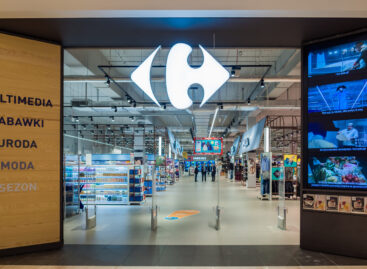Thousands of Hungarian webshops could become potential advertising platforms
Only 13.5% of domestic e-retailers offer retail media services to their suppliers, and only 1.8% are open to external advertisers. This ratio is very low – especially in light of international trends – which indicates the significant growth potential in the sector. PwC Hungary, with the professional assistance of IAB Hungary, conducted research on the current state of retail media among almost 800 online stores.
 The essence of retail media, a new advertising form that is growing explosively in the world of e-commerce, is that retailers offer advertising opportunities to brands through their own online platforms. The most famous representative of this advertising form is Amazon, which, thanks to its retail media solutions, is already the third largest advertising platform behind Google and Meta.
The essence of retail media, a new advertising form that is growing explosively in the world of e-commerce, is that retailers offer advertising opportunities to brands through their own online platforms. The most famous representative of this advertising form is Amazon, which, thanks to its retail media solutions, is already the third largest advertising platform behind Google and Meta.
The special feature of the media format lies in the fact that brands reach consumers directly as part of the shopping experience – while they are actively searching for products – on the retailers’ platforms. Since ads appear directly at the point of purchase, consumers are more likely to buy what they see an ad for, compared to traditional online ads that are placed at the beginning or outside of the purchase process. In addition, e-commerce platforms collect a lot of data about shopping habits, preferences and purchase history, which can be used to create personalized ads.
Retailers are eager for a new source of revenue
The growing interest in retail media is due to economic challenges and the desire of e-retailers to increase revenue. According to the research, a significant part of Hungarian online stores (89%) still manage retail media within the framework of trade marketing, meaning that the definition of digital advertising as a separate service is in its infancy. Nevertheless, more and more companies are exploring new monetization opportunities, and another 14.2% are expected to implement retail media solutions by 2025.
According to research conducted by PwC in November 2024, it is increasingly difficult for Hungarian e-retailers to achieve growth in the current economic situation, which is why many are already open to monetizing their own commercial platforms.
Related news
Carrefour Poland Doubles Retail Media Revenue
🎧 Hallgasd a cikket: Lejátszás Szünet Folytatás Leállítás Nyelv: Auto…
Read more >US, China and Russia dominate Europe’s ecommerce top 10
🎧 Hallgasd a cikket: Lejátszás Szünet Folytatás Leállítás Nyelv: Auto…
Read more >PwC Consumer Loyalty Outlook: Loyalty Enters a New Era
🎧 Hallgasd a cikket: Lejátszás Szünet Folytatás Leállítás Nyelv: Auto…
Read more >Related news
(HU) Átadták a SIRHA Budapest 2026 Innovációs Termékverseny díjait
🎧 Hallgasd a cikket: Lejátszás Szünet Folytatás Leállítás Nyelv: Auto…
Read more >HELL CITY has arrived, led by Michele Morrone
🎧 Hallgasd a cikket: Lejátszás Szünet Folytatás Leállítás Nyelv: Auto…
Read more >








